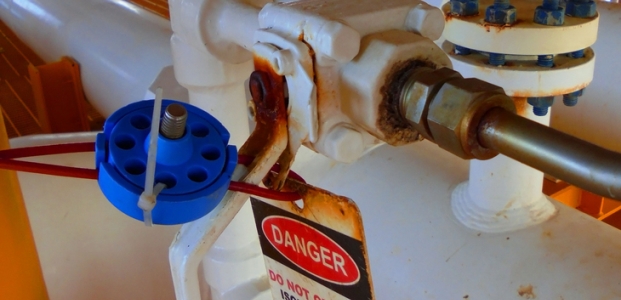Scheduled witnesses in the committee’s 2:30 p.m. hearing include nominees for surgeon general and some top HHS positions.

The Z244.1-2016 standard attempts to help employers and safety managers prevent both violations and worker exposures to hazardous energy.

Use these tips for selecting the best protection for those in your laboratory.
The board of directors at Santee Cooper on July 31 suspended construction work on Units 2 and 3 at the V.C. Summer Nuclear Station in Jenkinsville, S.C. -- a decision the company reports will save is customers nearly $7 billion.
A greater proportion of blood and body fluid splashes and splatters are occurring in patient and exam rooms than in years past, and almost two-thirds of them involved workers' eyes -- a significant concern because fewer than 7 percent of the workers involved with those exposures reported they were wearing eye protection, it reported.

Establishments with 20-249 employees that are classified in certain industries with historically high rates of occupational injuries and illnesses -- they include construction, utilities, agriculture, and many more -- will have to electronically submit information from OSHA Form 300A.
AT&T, in a public-private partnership with FirstNet, will build, operate, and maintain the network at no cost to the state for the next 25 years; the governor said it will transform the way West Virginia's fire, police, EMS, and other public safety personnel communicate and share information.
Workers also can opt to file a complaint by fax, mail, or hand-delivery, by contacting the agency at 800-321-6742, or by calling an OSHA regional or area office.

The agency said it will launch a public dialogue about lowering nicotine levels in combustible cigarettes to non-addictive levels through achievable product standards, including issuing an Advance Notice of Proposed Rulemaking to seek input on the potential public health benefits and any possible adverse effects of lowering nicotine in cigarettes.
ASSE is the administrator of the U.S. technical advisory group that developed the U.S. position on the standard. ASSE leaders including Tom Cecich, its immediate past president, say ISO 45001 is one of the most significant occupational safety and health voluntary national consensus standards ever.
The Australian safety agency already has taken advantage by taking investigative video with its drone after a loaded coal train derailed in Queensland on July 21, 2017.
The Public Employees Retirement System's board is expected to vote July 28 on whether to lower the assumed return on its investments during the next two decades, reducing it from the currently assumed 7.5 percent average return per year.

The Flood Awareness Apex applies emerging technologies to improve community resilience from flood disasters in order to reduce flood fatalities and property losses.
CFIA is considering changes to the Health of Animals Regulations that would require all Canadian operators of premises where livestock may be loaded or unloaded from a vehicle to have a valid premises identification number for each site and to report the number when receiving livestock.
The revised HIPAA Breach Reporting Tool allows entities to report a breach, and the website informs members of the public of how breaches are investigated and resolved.